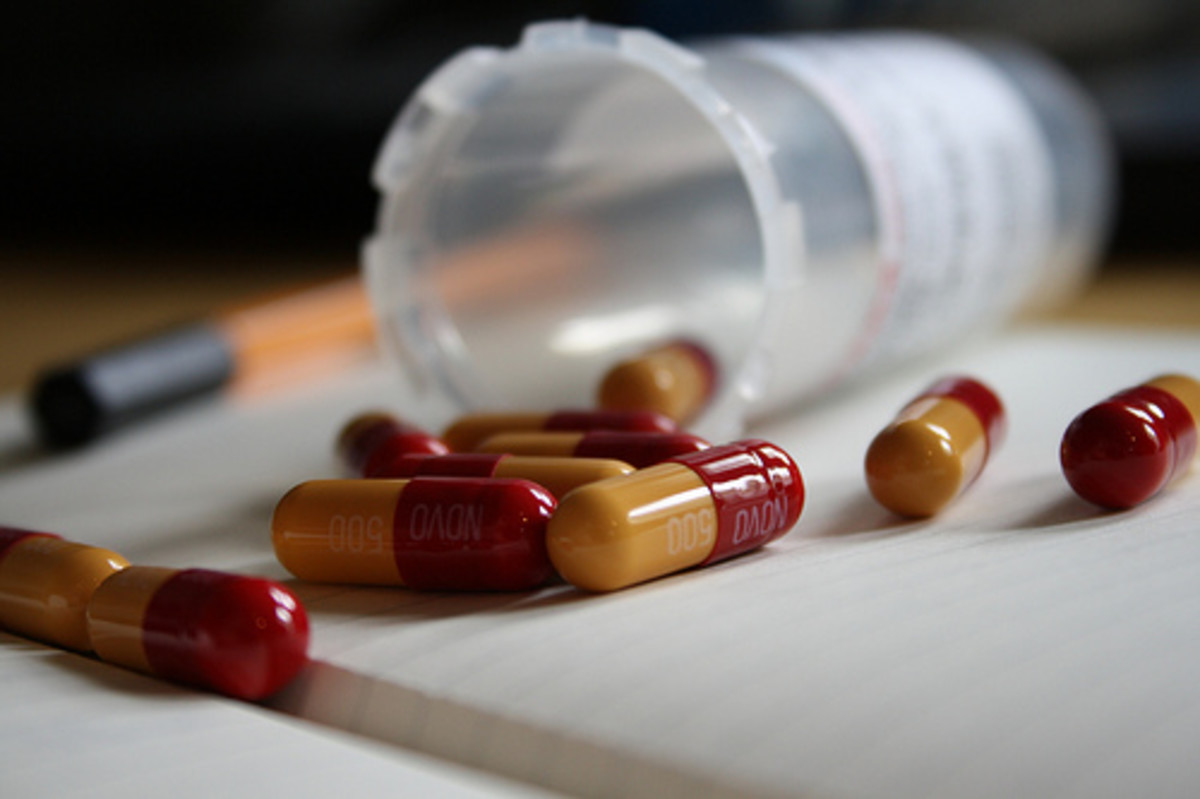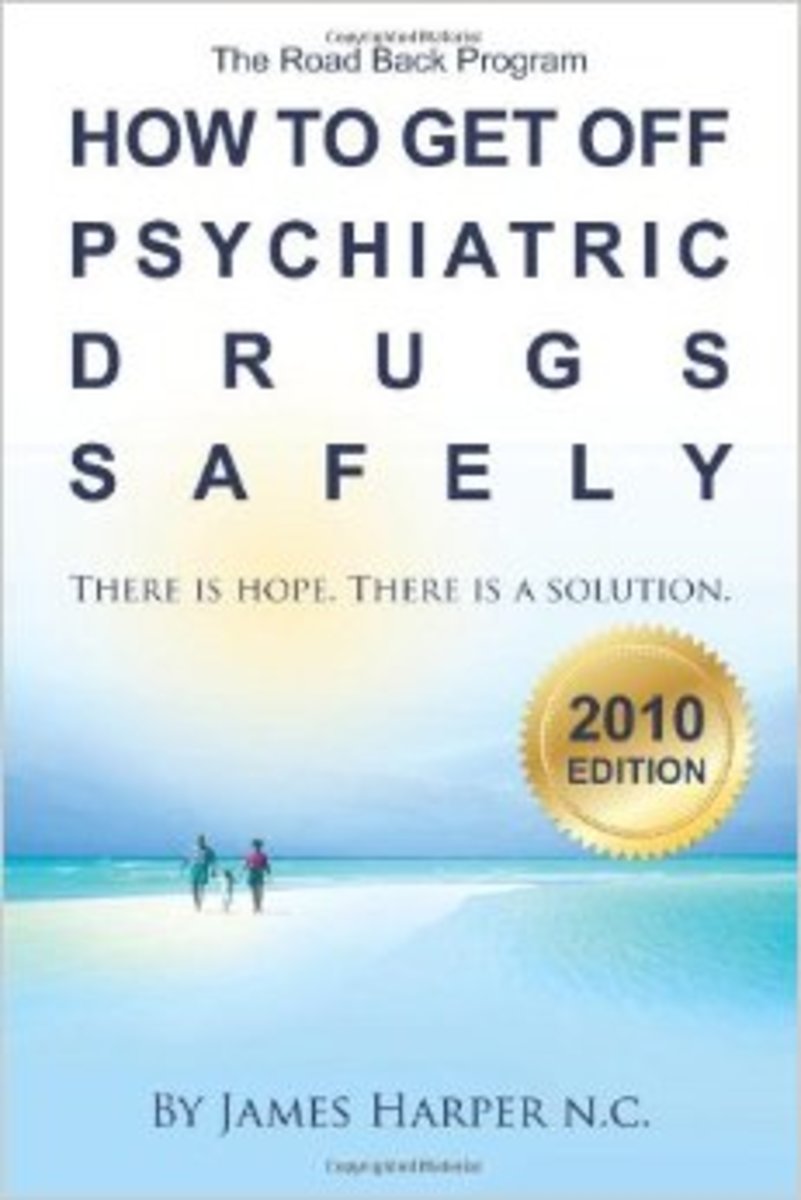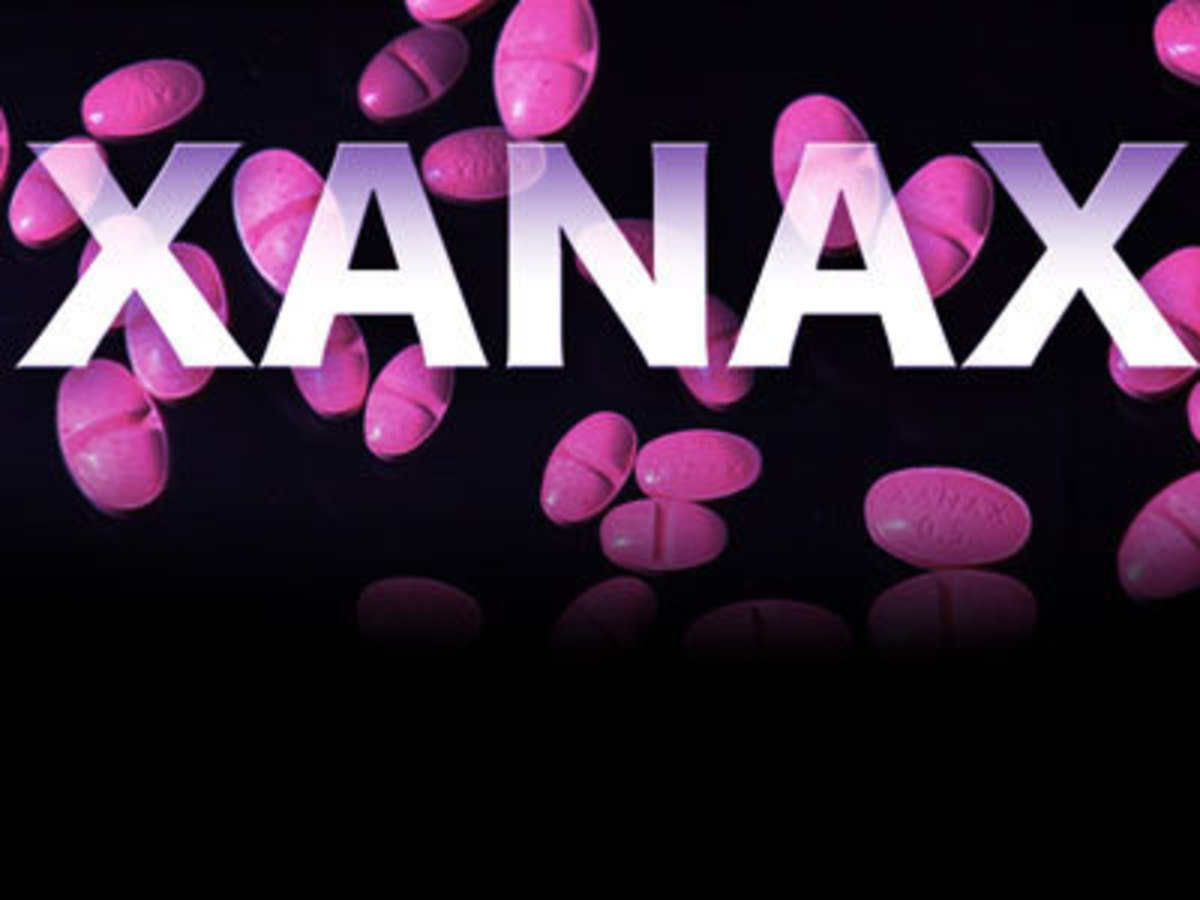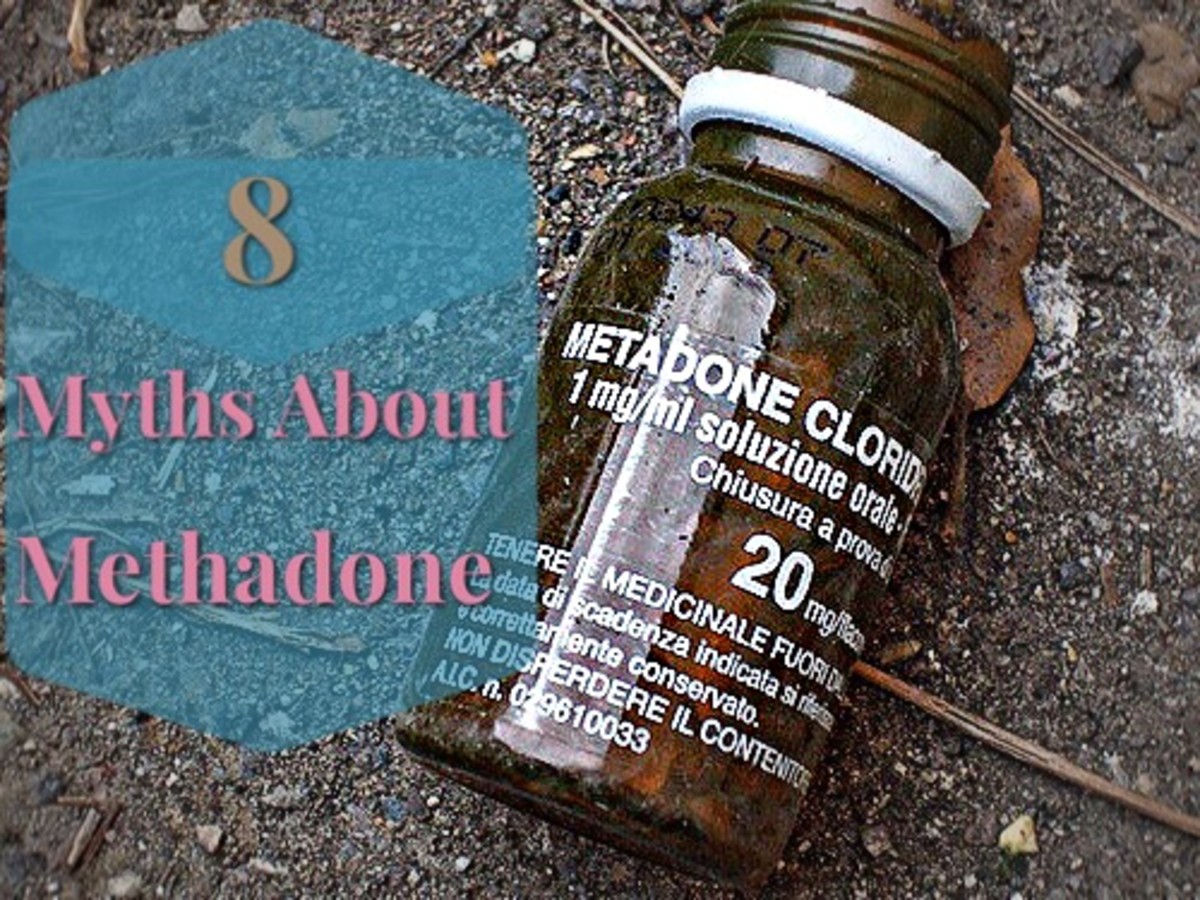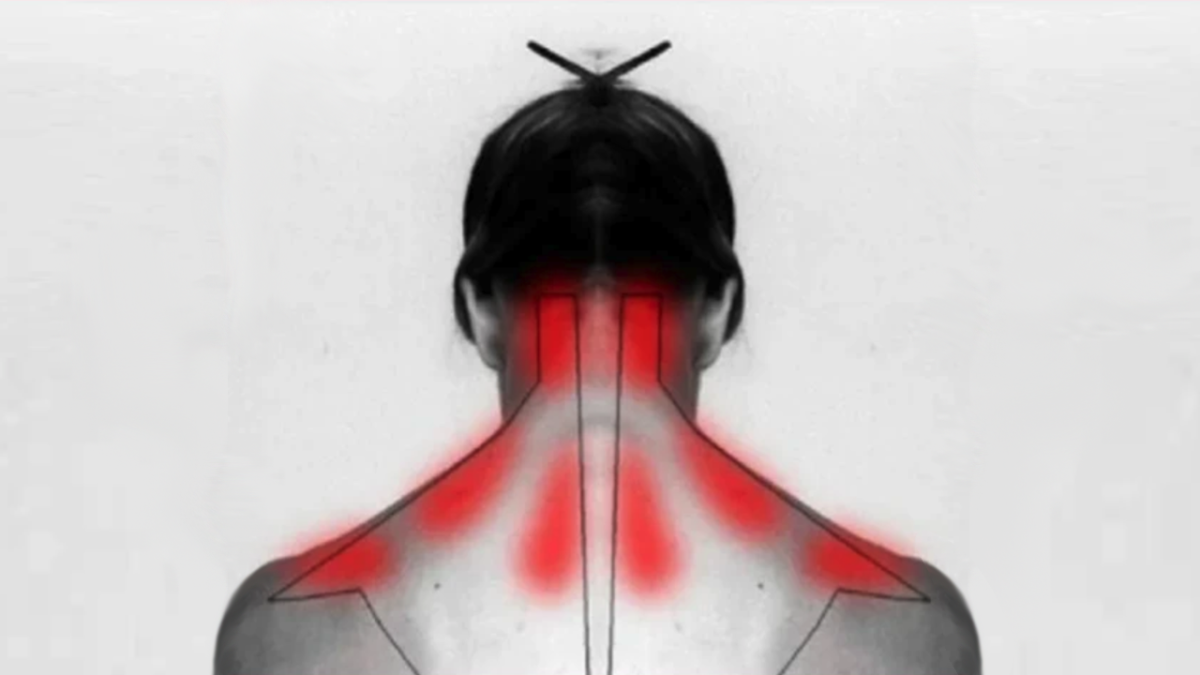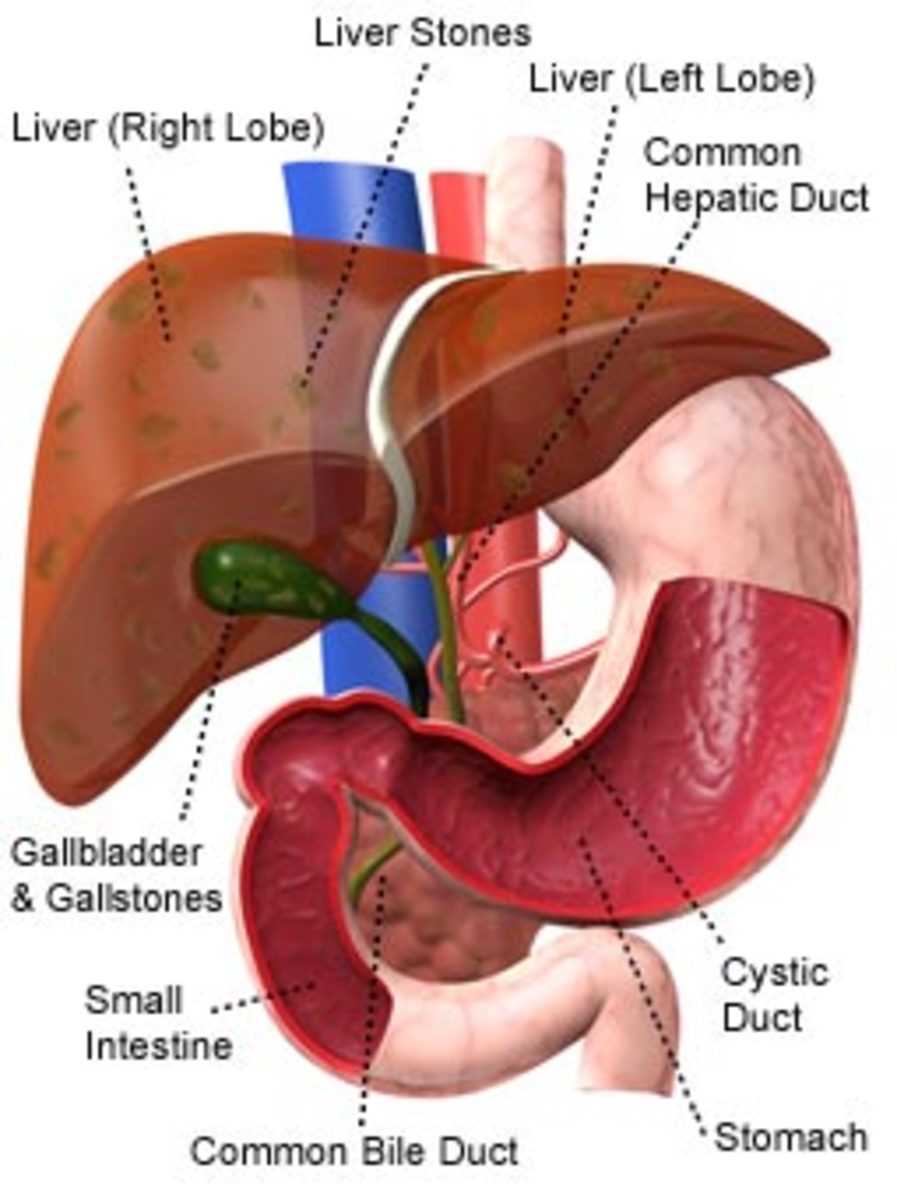How to Get Through Protracted Withdrawal Caused by Antidepressants
Life's Roller Coaster Ride
It's natural for all of us to have rather significant upsets in our lives from time to time which could cause us to seek prescription meds to ease anxiety and depression. In time we may feel we can don't need these meds anymore, but trying to wean off these meds cause withdrawal symptoms that can be quite severe. This article addresses how to control withdrawal symptoms which will allow weaning off antidepressants.
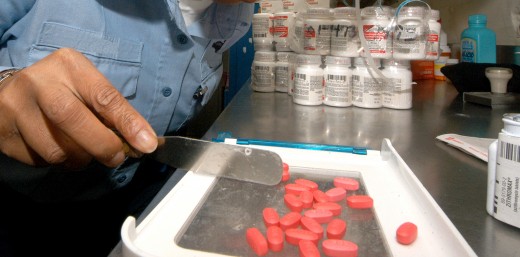
How Do These Medications Work?
Your doctor will tell you that it can take up to six weeks for such medications to take full effect. You may feel some relief sooner depending on how your body is accepting them.
The medication enters the bloodstream and is immediately absorbed in all the tissues and proteins throughout the body. This means that the brain is getting little or nothing of the drug until the body is completely saturated. Once the body tissues are saturated with the drug, more is left in the bloodstream where it begins to saturate the brain.
The Down Side of Weaning Off Meds
Your life is normalizing, you're feeling better, and you feel you can stop taking your medications. You should begin tapering off with your doctor's help, or a qualified health practitioner.
Once you begin to taper off, it's typical to feel fine for about two weeks, until the saturated cells figure out they need to dump the medication back into the bloodstream, causing unforeseen, severe side effects. Note that suicidal thoughts, rapid mood shifts, worsened depression, 1anxiety, and panic attacks and more can all be a part of withdrawal.
Become Empowered, not Scared
It's extremely important to know that no matter how scary this process may seem, there is authoritative information that will give you the power to gain the upper hand, overcome, and regain health and happiness. The key is to make a calculated plan, being armed with critical facts to ensure success.
But before one can really understand the facts of how to succeed in overcoming protracted withdrawal, understanding the severity of the symptoms becomes important so that if they happen to you, you can realize you are still on track to getting better, rather than being derailed by frightening out-of-control symptoms. Following are some cold, hard facts about the severity of withdrawal.
Dr. Heather Ashton Addresses Benzodiazepine Protracted Withdrawal
Many Chemicals Are Alien to Our Bodies
Dr. David Healy, in his book, "Let Them Eat Prozac" makes startling statements about antidepressant drugs. Paraphrasing, he says that chemicals found in antidepressant drugs are "alien" to our bodies and that rather than replacing missing chemicals in the body, they create stress. And the consequences of this stress become even more apparent when it is withdrawn and the body tries to regain balance.
2Truehope Nutritional Support, Ltd. created supplemental materials to aid in the success of overcoming protracted withdrawals. Among other things, their materials state (paraphrasing) that withdrawal of antidepressant and psychosomatic medications may mimic the very symptoms they were designed to control and manage. Additionally, it is extremely important to note they report that protracted withdrawal symptoms are often intensified by physical exercise, stress, and diet changes that could include weight loss.
How to Lessen the Severity of Protracted Withdrawal Symptoms
There are several key factors in dealing with and overcoming the protracted withdrawal process. Among these are:
• Proper nutritional support to replace the missing nutrients and chemicals in the body, thus eliminating the need for prescription medications. (See Resources at the end.)
• Understanding the release of medication into the bloodstream from body tissues as nutritional balance in the body occurs. As the body receives what it needs nutritionally, it cleanses itself of toxins which release into the bloodstream, thus creating the symptoms of protracted withdrawal.
• Planning a healthy tapering rate to wean off prescription medications is vital so that withdrawal symptoms are manageable. Usually a 10% to 25% taper down per week, (some sources suggest a month) but as indicated by Dr. Heather Ashton, (see above) this rate should be left mostly to patient discretion.
• Realizing that exercise, diet, stress, (and other factors) can actually trigger and cause intensified protracted withdrawal symptoms.
• Becoming educated about useful "add-ons" to help the body manage through the protracted withdrawal process. These add-ons include (but are not limited to) phosphatidylcholine (for racing thoughts), 4inositol (calming the body—both of these aid greatly in anxiety and panic attacks), 5amino acids (balance brain and body chemistry), isolated whey protein (binds toxins to its molecules to cleanse the body). There are more possible add-ons, but these are considered some of the most essential.
When protracted withdrawals become severe, you can slow the cleansing process down. Adjusting the tapering off rate, physical activity, diet, and add-ons can all help reduce the severity of protracted withdrawal symptoms.
A Note about Possible Interactions
Combining vitamins and minerals with some herbal and homeopathic remedies can cause adverse reactions and reduce desired progress. Before adding in such things as St. John's Wort and 5HTP make sure that you check for possible 6adverse reactions.

In Summary
Remember that this process is not about how fast or slow it happens. Most of us are impatient about having to suffer anything. Realize your body is working as fast as it can to make the billions and billions of changes to restore and keep you healthy. In reality, the more severe things seem to be, the more your body is sorting through everything it can to make the repairs and restore your health.
You'll likely have setbacks occasionally, which is completely natural. Even healing from a virus usually made of good days and bad ones. Over time withdrawal symptoms will become less and less, until the episodes are just an infrequent, insignificant blip.
The key to this process is to be educated, armed with facts, and take it at a rate you can tolerate. A good support system is a must. Family, friends, and medical professionals can all be a part of it.
My Personal Experience: A Final Thought
I went through this experience. It was extremely difficult, but my life is universally better. Some people will try and fail a time or two. But it doesn't mean they can't ever get through this process. There are several factors that only you can determine that will help you decide when the time is right for you to start, or even to try again. Be patient with yourself, your mind and your body. Preparation and readiness for this process may take a while.
Resources:
1Nutrition and Natural Substances That Control Anxiety and Panic Attacks
2Truehope Nutritional Support, Ltd.
3What Is Inositol? What Does It Do?
What You Need to Know about Mental Illness and Nutrition
Healthy Brain Benefits of Choline
What Is Inositol? What Does It Do?
http://www.merck.com/mmpe/index.html
For full details on implementing a protracted withdrawal protocol, visit truehope.com
© 2013 Daniel Carter

